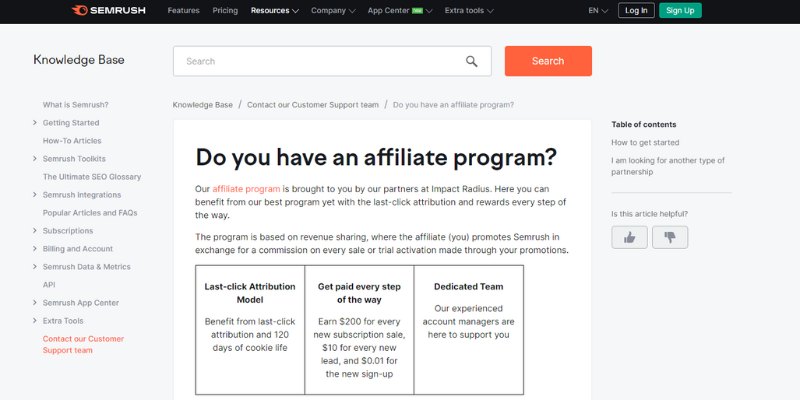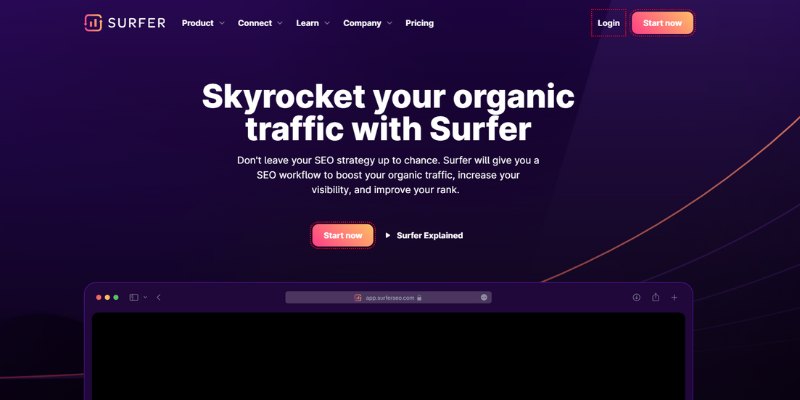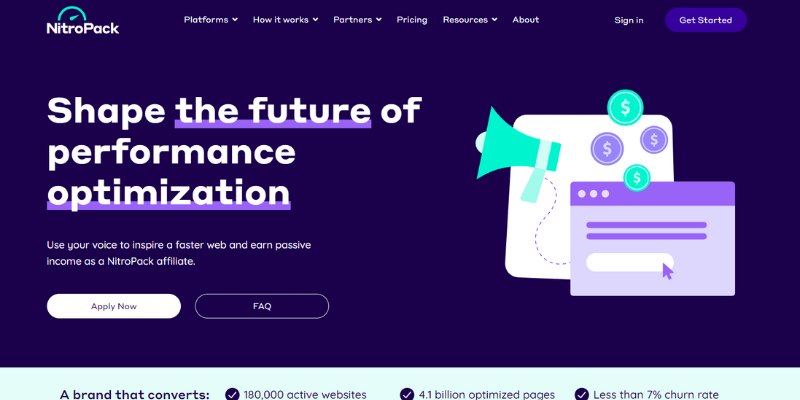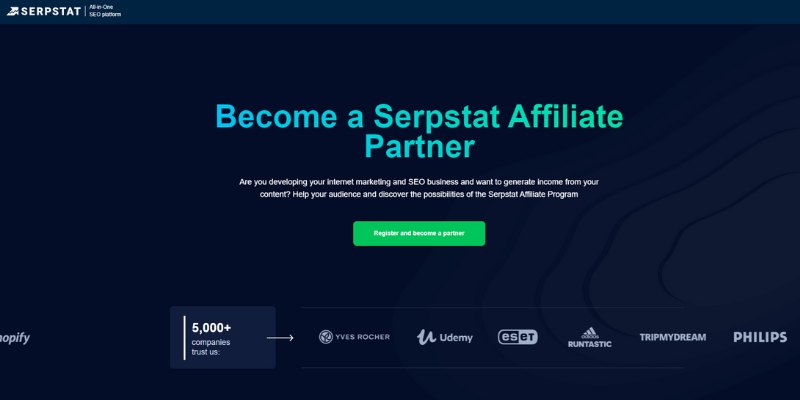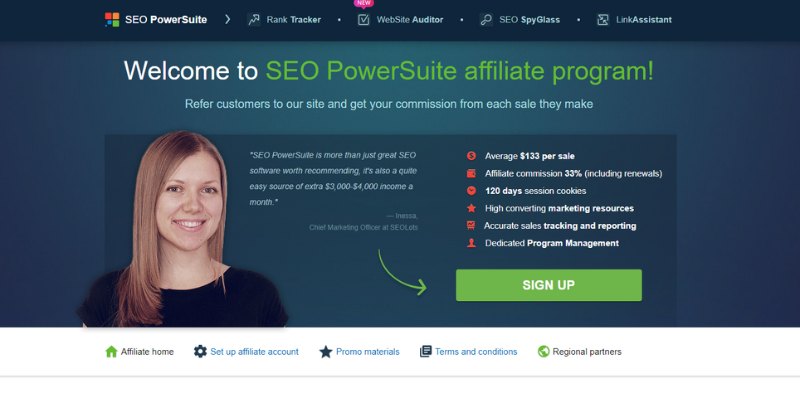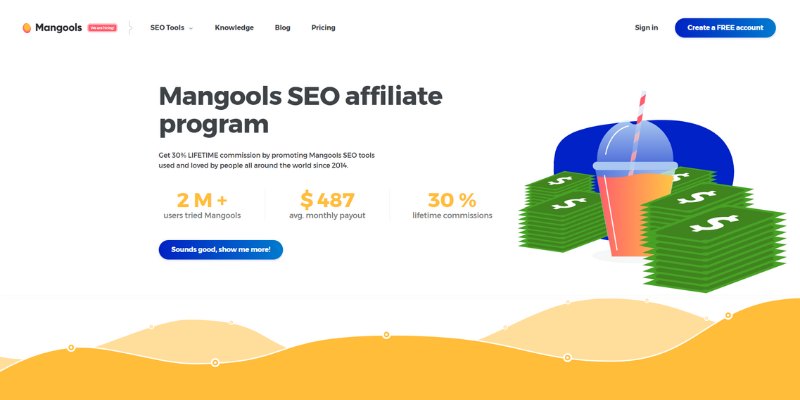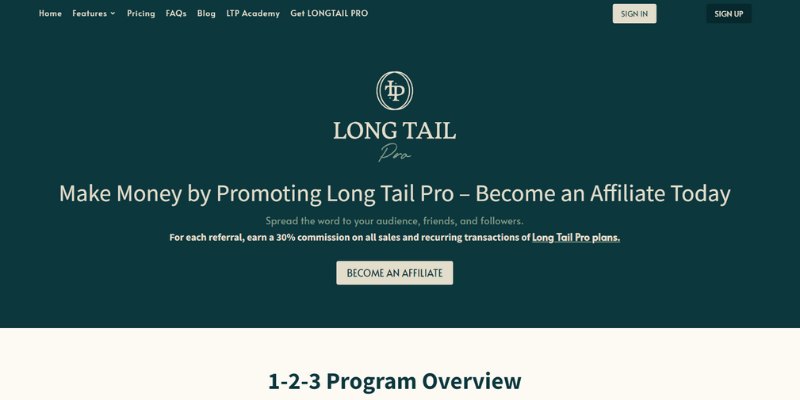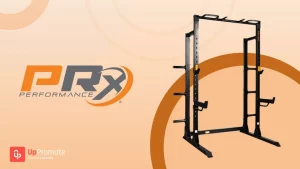The best SEO affiliate programs can help you earn extra money by leveraging the most valuable marketing strategy of today’s global brands – SEO. After all, SEO experts project the industry to balloon to $103 billion in two years.
Unfortunately, SEO affiliate marketing networks abound. Choosing the best can be challenging, if not outright frustrating.
We feel you. And that’s why we researched far and wide to bring you nine of the most trusted SEO affiliate marketing programs that can add several zeros to your bank account monthly.
From commission rates to joining ease, we hope you’ll find the following SEO affiliate networks instrumental in realizing your financial goals in 2024.
9 Best SEO Affiliate Programs Options to Earn Some Extra Money
SEMrush
SEMrush is the undisputed leader in Search Engine Optimization tools. Three in ten Fortune 500 companies use this platform to boost their brand image, allowing them to expand their global reach.
But that’s just the icing on the cake. Over seven million in-house marketers and SEO agencies rely on SEMrush’s impressive SEO services.
Businesses leverage SEMrush’s impressive database, featuring 20 billion keywords.
In terms of high-quality marketing material, SEMrush has over 40 SEO tools to make landing on the first SER page easy for any brand. It’s the Swiss Army knife of SEO service providers, empowering companies to perform various tasks, including backlink analysis.
Although its subscription plans can be “pricey” for some, with the lowest monthly at $119.95, it’s a bargain considering SEMrush’s impressive toolkit.
That’s great news for you as a marketer on SEMrush’s affiliate program. You’ll never worry about your commissions.
Applying as an affiliate marketer for SEMrush is easy. Although the standard application verification only takes two days, it’s not uncommon for aspiring SEMrush affiliates to wait longer.
- URL: SEMrush Affiliate
- Cookie duration: 4 months or 120 days
- Commission rate: $200 per new referral subscription, regardless of Plan, plus $10 per new lead, and 1 cent for new referral signup
Surfer SEO
Driving organic traffic seems daunting to novice business owners. They think that no amount of content marketing effort will ever land them at the top of the SERP heap.
That’s because they haven’t discovered Surfer SEO yet – one of the best affiliate programs. And boy! They’re in for a surprise!
SEO Surfer’s advantage is its pinpoint keyword targeting accuracy. It helps brands create engaging and Google-loving content. More importantly, using the tools is a breeze.
Brands can choose from various subscription plans to accommodate a whole range of business types.
And you know what? These subscriptions can translate to better affiliate sales. Joining is a cinch, too.
And with recurring commissions, becoming a Surfer SEO affiliate is a must for anyone who wants to bring extra cash regularly.
A recurring commission allows affiliate marketers to receive commissions from a successful referral regularly. In the case of Surfer SEO, affiliates receive a recurring commission at 25% every time a new customer renews their subscription.
- URL: Surfer SEO Affiliate
- Cookie duration: 2 months or 60 days
- Commission rate: Recurring at 25%
SE Ranking

Introducing SE Ranking, a powerful toolset for SEO pros from agencies and in-house teams.
And this is not an exaggeration, given the wide range of features and integrations, generous data limits, and flexible prices. More than 35 tools are available, including SE Ranking’s well-praised 100% accurate Rank Tracker, AI-backed On-Page SEO Checker and Content Editor, multi-angle Website Audit, Keyword and Competitive Research, Backlink Checker, and much more.
That’s not all. Comprehensive add-ons like Local Marketing, Agency Pack, and Content Marketing also make a wow impression. The fact that over 1 million users have put their trust in the platform says it all.
To join the affiliate program — just sign up, grab your referral link, and start sharing with your audience. If you ever need a helping hand, a friendly support team will answer any questions you might have.
One of the best things is there’s no cap on your commissions, and you’ll earn on every sale — once you bring in a new user, you will be credited as their referring affiliate for all future purchases. Getting paid is just as easy as promoting. Once you reach the $50 threshold, you’ll receive your commissions twice a month via PayPal. No complicated payment processes or long wait times — just the rewards you deserve.
- URL: SE Ranking Affiliate
- Cookie duration: 4 months or 120 days
- Commission rate: 30% commission on each subscription sale (~ from $19.5 per one monthly referral subscription)
AccuRanker
Tracking how targeted keywords perform in generic and geo-specific searches is nightmarish for most novice businesses.
AccuRanker to the rescue!
Case studies underscore AccuRanker’s impressively accurate rank tracking capabilities. It allows brands to analyze SERP performance, pointing where they should focus their marketing activities.
Unsurprisingly, IKEA, Hubspot, Koozai, and 32,000 other companies partner with the world’s leading rank checker.
Leveraging your affiliate SEO mastery can translate to a financially brighter future as you encourage brands and followers to try and subscribe to AccuRanker.
Dare we say AccuRanker’s affiliate commission scheme is better than other SEO affiliate marketing brands? So, make your affiliate application today.
- URL: AccuRanker Affiliate
- Cookie duration: 4 months or 120 days
- Commission rate: $220 per new subscription, plus $12 per new trial
Link Whisper
Google and other search engine platforms recognize the interconnectedness of everything.
And that’s why leading brands strive to create high-quality external links to authority sites and internal links to measure a URL’s relevance to the search word. Ultimately, it defines the URL’s spot on the SERP.
Link Whisper’s innovative programming empowers businesses to create high-performance landing pages, blogs, and other web content.
This digital marketing tool suggests context-based site-related links to rank high on SERPs. Businesses will never toil searching for linking opportunities, like an internal linking suggestion.
Unlike other SEO services, Link Whisper’s subscription plans are affordable. The budget-friendly prices make it easy for affiliates to woo potential customers.
The more clients you encourage to subscribe to Link Whisper’s services, the better your chances of generating extra income for yourself and your loved ones.
Tracking your referrals is convenient because Link Whisper displays everything in one place. You’ll stay abreast of your earnings, including unpaid balances.
- URL: Link Whisper Affiliate
- Cookie duration: 30 days
- Commission rate: 30% per initial subscription and subscription renewals
NitroPack
With nearly 4 billion optimized web pages to its name, NitroPack is one of the best affiliate programs for SEO you can try in 2023.
You’d wonder how NitroPack does that.
Although NitroPack has several offerings across various niches, its most prized product is the PageSpeed tool. NitroPack unleashes unrivaled page-loading speeds, improving speed score by 69% and boosting speed index upturn by 383%.
Unsurprisingly, many brands love working with NitroPack. They recognize PageSpeed’s value in ranking high on SERPs.
The fun part is you can exploit this observation by becoming a NitroPack affiliate. Joining is a breeze, and you can enjoy commissions for a year and a half on a single account.
Imagine if you churn in tens of clients monthly.
However, reviewing the affiliate requirement takes about 14 days. It could be a downer for affiliates wanting to start immediately.
- URL: NitroPack Affiliate
- Cookie duration: 30 days
- Commission rate: 20% recurring for 18 months
Serpstat
How does $75,000 annually sound to you? Well, Serpstat remunerates its top-performing agents with this much incentive. And you could do that, too.
Serpstat is one of the most trusted affiliate programs for SEO anyone can try in 2024. It’s a comprehensive platform. Affiliates will find Serpstat easy to market to various brands.
L’Oreal, Uber, Shopify, Philips, Samsung, and Deloitte are some big-name brands that use Serpstat. These global companies leverage Serpstat’s impressive SEO-related services.
Its keyword research tool allows brands to create high-SERP-performing landing pages. Serpstat’s link-building insight is also admirable.
As an affiliate, you can use any Serpstat affiliate marketing tool to increase your chances of earning more. The possibilities are endless.
- URL: Serpstat Affiliate
- Cookie duration: 15 days
- Commission rate: Maximum 30% (initial and subsequent subscriptions)
SEO PowerSuite
Nestle, IBM, and Amazon trust SEO PowerSuite for their SEO needs. And if these reputable brands recognize SEO PowerSuite as an indispensable partner, so should you.
It’s a jack-of-all-trades service, empowering companies to track keyword performance, audit web pages, analyze backlinks, and more.
Like other affiliate programs, SEO PowerSuite offers exceptional customer service for its “partners” – you. It has a dedicated affiliate program management team that beef up affiliate network assistance.
Affiliates receive high-converting links, banners, and other promotional materials. You’ll never fret crafting these things because SEO PowerSuite’s team will do it for you.
You’ll never feel left behind in your SEO affiliate marketing journey. It should bring you closer to your dream holiday and faster, too.
Did you know the average SEO PowerSuite affiliate can earn up to $4,000 monthly? While it doesn’t sound much, it’s better than lazing at the poolside.
- URL: SEO PowerSuite Affiliate
- Cookie duration: 4 months or 120 days
- Commission rate: 33% for initial subscription and renewals, plus $165 per sale
KWFinder by Mangools
Determining the correct keyword to target is never easy. Surprisingly, KWFinder by Mangools makes the task seem like child’s play.
It’s especially magical in identifying long-tail keywords, allowing brands to improve their valuable page ranking.
Businesses will find KWFinder’s pricing scheme more affordable than others, starting at $49 and maxing at $129. Brands will save more money by opting for an annual subscription.
SEO professionals also love KWFinder’s user-friendly interface. They can see all-important metrics in one location, facilitating easier filtration.
Affiliates will love marketing KWFinder because it’s effortless to join. Unlike other companies, KWFinder doesn’t have a vetting process.
Hence, you can create an affiliate link immediately after registration. Promotional material is available. You only need to share them with the embedded affiliate ID.
Please note KWFinder requires a $150 minimum payout threshold.
Although KWFinder’s average monthly payout is “smaller” than other programs, it remains a good platform to start your SEO affiliate marketing journey.
- URL: KWFinder Affiliate
- Cookie duration: 30 days
- Commission rate: 30% for a lifetime commission
Long Tail Pro
Long Tail Pro is nearly identical to Mangool’s KWFinder, except its cookies last a year.
Spencer Haws developed this tool in 2011 to enable website owners identify and select the best possible low-competition keywords to improve their brands’ SEO niche strategy.
It offers a comprehensive competitor analysis, allowing SEO managers to focus on trust flow, site age, citation flow, page keyword competitiveness score, external backlinks, and other critical metrics.
The best part about this tool is it showcases the dollar value for each keyword ranking. This feature gives brands an idea of which keywords and key phrases to use in their programs.
Sans vetting, becoming a Long Tail Pro affiliate is a cinch. Completing the signup form automatically gives you access to its tools, including link-generation.
You can embed the affiliate ID in social media posts, website content, and other platforms. You could even share it with new contacts on email searches.
Although Long Tail Pro’s client base is not as extensive as other SEO programs, its ease of joining and extended cookie-life make it an excellent platform for novice affiliates.
- URL: Long Tail Pro Affiliate
- Cookie duration: 365 days
- Commission rate: 30% on sales and renewals
What are SEO Affiliate Programs?
SEO affiliate programs aren’t different from other marketing activities except the product focus. As an affiliate marketer, your responsibility is to promote SEO services and products of SEO brands.
It recognizes the value of optimizing keywords to improve placement in search engine results pages and boost a company’s digital marketing strategy.
As an SEO affiliate marketer, you possess a unique identifier to help the SEO company credit every referral and successful subscription to your account.
You earn a commission every time a client subscribes to an SEO plan offered by the SEO company you’re affiliated with. Most platforms provide recurring compensation – you’ll get paid every time the client “renews” a subscription.
Others reward you for referring clients willing to try their SEO services.
Hence, the more “new” clients you bring to an SEO company, the higher the passive income potential. You’ll also receive compensation for “ongoing” customers.

How to Choose the Right SEO Affiliate Program?
Choosing the right SEO affiliate marketing program to monetize your website, blog, or social media account requires considering the following attributes.
Commission rate
The best affiliate programs for SEO offer 25 to 30 percent commission, although some compensate their “partners” with a fixed rate. You might want to pick a program with recurring remuneration, allowing you to generate wealth over time.
But remember, different commission schemes are available for every type of affiliate.
A hybrid commission model (e.g., base commissions + bonuses for additional services) is a sound choice if you offer other services (e.g., support, tutorials). Your commissions are based on the value of the added services.
If you’re into direct sales, try a percentage-based commission. Your earnings are based on completed transactions from referrals.
Alternatively, a performance- or tiered-based commission if you’re a niche affiliate marketer. You earn for selling the specialized items you promote to your audience.
A pay-per-lead commission structure can be for a lead generator. It allows them to earn commissions for driving qualified leads to the company/business.
Overall, commission triggers include many things, such as added service value, unique product sales, direct referral sales, and qualified lead provision.
Cookie duration
Not everyone who clicks a link is ready to make a purchase. In most instances, potential customers take weeks to decide. Hence, the longer the cookie duration, the higher your chances of earning a commission. A 30-day cookie lifespan is the standard, but SEO companies can detract from the norm.
Payout channels
As an affiliate marketer, you’ll want to withdraw earnings from the SEO affiliate company in the most convenient method. While most SEO affiliate programs provide multiple payment channels, some have limitations. PayPal, Payoneer, bank transfer, and check are common.
Affiliate support
Although you might already be a user of the SEO service provider’s tools, you will still want ample support. Creating banners, links, and promotional materials takes time. You’ll be better off with an affiliate program with readily available resources to post on your channels.
Credibility
Think of an SEO company as a part of you. Would you promote something you know doesn’t reflect well your efforts of being a website owner, blogger, social media influencer, or affiliate marketer? So, read reviews and pick only SEO affiliate companies with an untarnished reputation.
FAQs
Q: What makes SEO affiliate programs beneficial to promote?
A: Although big-name brands have well-established SEO strategies to boost their market presence, we cannot say the same for small and medium-sized enterprises.
Q: Do you know this observation’s implications?
A: You’ll have many opportunities to encourage small and medium enterprises to consider SEO a tool for increasing growth. Of course, you must create engaging content to let businesses “feel” the need for an SEO strategy.
Consider this. Nearly six out of ten (57%) Canadian and US small and medium-sized enterprises don’t have an SEO marketing strategy. In Canada, that’s about 689 thousand businesses out of 1.21 million.
In the US, over 33 million businesses are small to medium sized. Hence, your potential market is about 19 million.
You have the opportunity. So, why not grab it?
Of course, the compensation and ease of marketing are bonuses for promoting SEO services.
Q: Are there affiliate programs for SEO tools like SemRush and Ahrefs?
A: Yes, affiliate programs exist for SE optimization tools like SemRush and Ahrefs.
We already covered SEMrush on our list. So, let’s talk about Ahrefs.
Dmitry Gerasimenko created Ahrefs in 2010, featuring the AhrefsBot that constantly scans eight billion web pages daily.
The platform offers keyword targeting and analysis, rank tracking, and competition analysis, among other tools.
You can earn a decent 20% commission for every successful client referral. The only downside is becoming an affiliate is exceptionally challenging.
Mangools is a worthy platform for SEO affiliate marketers. Besides KWFinder, the company also has SERPChecker, LinkMinder, and SERPWatcher. You can promote these tools to your prospective clients to better their chances of boosting their market presence.

Conclusion
Now’s the time to join the best SEO affiliate programs in 2024. The potential income is great, and the workload couldn’t be lighter for today’s internet-savvy folks.
Because more and more companies are strategizing their marketing programs to include ranking high on search engine result pages, your promotional activities are less stressful. You only need to be as compelling and engaging as possible.
So, pick one or several, and start realizing your dreams of a more financially stable future.



